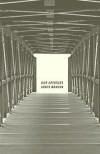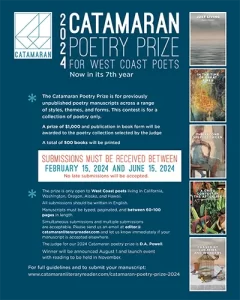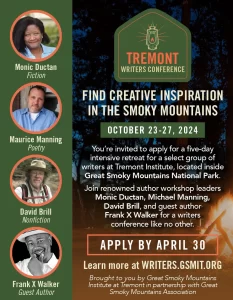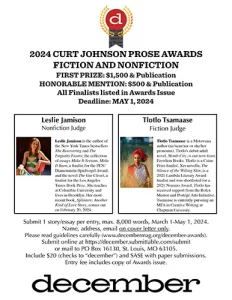Our Aperture
In some ways, Ander Monson’s new chapbook Our Aperture finds the writer up to his familiar tricks. Like his fiction and his essays, Monson’s poems are elegiac in mood, mourning the losses of old lovers and dead friends even as they pine for obscure shampoo ingredients and virtual realities. He concentrates his energies on lists of objects and failing technologies, on relics of recent memories, on complaints against the loved ones who once owned and inhabited the things and places that make up a life.
In some ways, Ander Monson’s new chapbook Our Aperture finds the writer up to his familiar tricks. Like his fiction and his essays, Monson’s poems are elegiac in mood, mourning the losses of old lovers and dead friends even as they pine for obscure shampoo ingredients and virtual realities. He concentrates his energies on lists of objects and failing technologies, on relics of recent memories, on complaints against the loved ones who once owned and inhabited the things and places that make up a life.
The shortest poem, “Methylchloroisothiazolinone,” serves as an excellent introduction to Monson’s writing and to his particular brand of elegy:
Strange reagent, neatly tucked
in bottles of Suave, Finesse
that my sister’s ghost still uses
to keep her hair rich and free
in the wind that rarely deigns
to pick up strands and gloss them,
toss them outwards in a sphere,
add kinetic energy
to the scalp’s potential for it – home
to the ghosts of roots; home
to the roots of those ghosts.
Compact and concise, “Methylchloroisothiazolinone” nonetheless contains a small ice chip of sadness perfectly preserved in this memory of a lost sister. Our Aperture is full of moments like this, where a tangible object is used to invoke both a shared, communal moment and also a specific emotional memory. It is a gutsy move to assume that these lists of objects will carry as much weight for us as they do for him, but more often than not it succeeds in invoking exactly the emotion the rest of the poem tells us it should. This is heartbreaking stuff, masterfully done, and a joy to read.
The personas speaking through these poems are frequently plagued with survivor’s guilt and lover’s remorse. Left behind as friends and lovers move on to better lives or else early deaths, these narrators ache longingly across great distances of space, time, and emotion. In “Elegy for Beotch,” Monson closes by railing against such layers of separation:
You think you’re something separate from the whorl,
a gleaming satellite, affixed above
all our dreams, but you’re the undeveloped
photographs that persist past memory
in our disposable cameras. What you
don’t know is this: all the world is filtered
light and trash beneath the bleachers; all the world
is tilt and crash and power loss (though let’s come
out this one time and call it love) and circumstance, or:
all the world is interruption, terrorface in gaslight,
just before it bursts.
Like this poem, much of Monson’s work acknowledges distance while also craving connection, creating a fine tension that seems to be as constant a part of his poetry as anything else. This is fast-moving anxious work, each poem a piling up of objects towards a critical mass that can only lead to either explosion or implosion. Monson knows just how to excite the senses with a deluge of details, then suddenly switch to stark stillness in moments that evoke love, loss, and transformation. The book ends with exactly this sort of glorious image, in “Any Vanishing Point Is As Good As This”:
the eye sees patterns where there are none—
rods and cones, the retina’s detritus,
or constellations, brain-imprinted from
too long staring backyard at the stars
in hopes of astronaut and launch, freeze-dried
food and the gentle rush of Tang, half-hopes
of the family viewed only from above
at such a distance that love disappears.
In the last three years, Monson has released three books in three genres, each ambitiously interconnected to the others and each the kind of major work that immediately establishes a writer’s reputation. By contrast, Our Aperture is the literary equivalent of a tour-only EP released by a favorite band, destined to be a rarity celebrated by a smaller, core readership. By virtue of being a chapbook, this is less likely to achieve the kind of status his earlier releases have, but that doesn’t make it any less essential. There is more here than the slim thirty pages might suggest, and those lucky enough to read it will find plenty to tide them over until Monson’s next full-length book.





